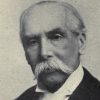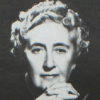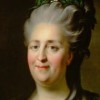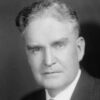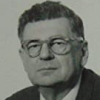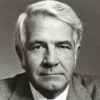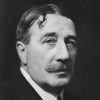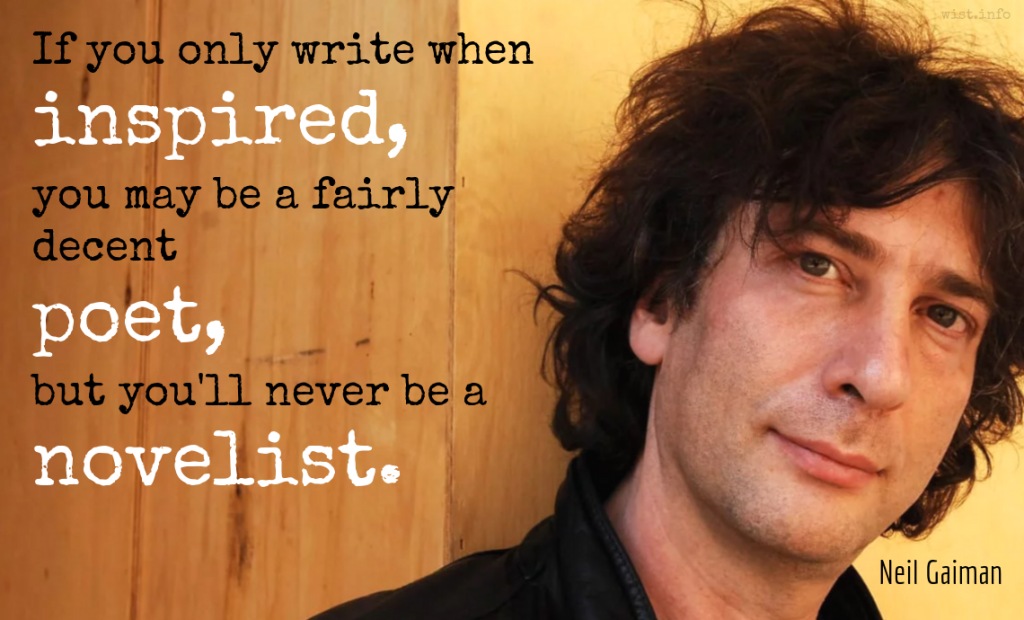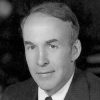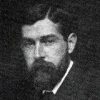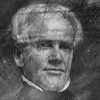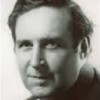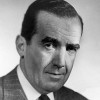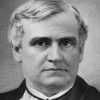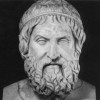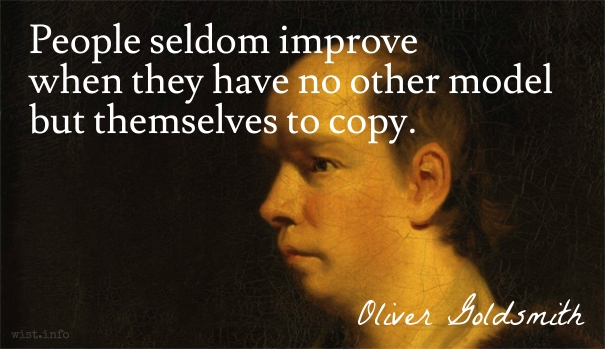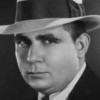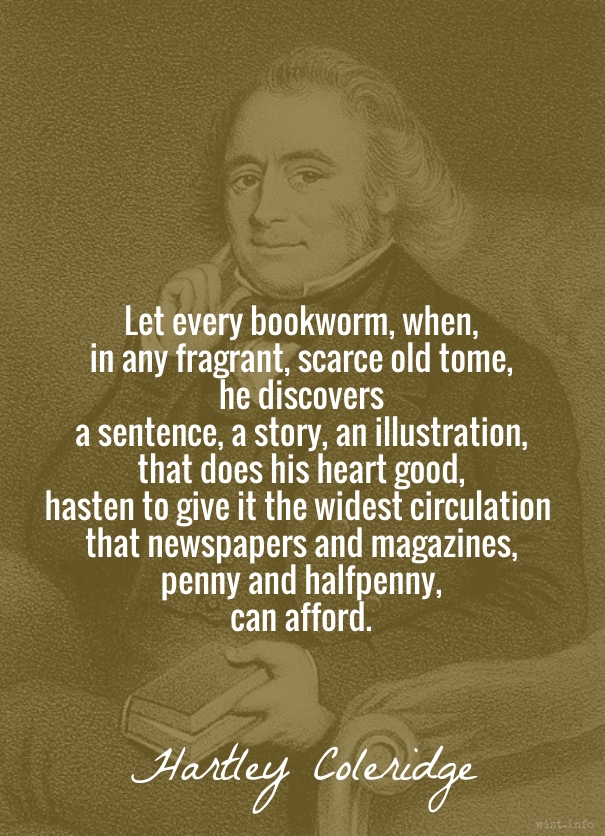A little knowledge is said to be a dangerous thing, but it is not dangerous to the imagination. Knowledge is to the imagination what fuel is to flame. A little feeds it; a great deal extinguishes it.
Quotations about:
inspiration
Note not all quotations have been tagged, so Search may find additional quotes on this topic.
I can recollect nothing more to say at present; perhaps breakfast may assist my ideas.
I was deceived — my breakfast supplied only two ideas — that the rolls were good and the butter bad.
But words are things, and a small drop of ink,
Falling like dew, upon a thought, produces
That which makes thousands, perhaps millions, think.
An old racetrack joke reminds you that your program contains all the winners’ names. I stare at my typewriter keys with the same thought.
Mignon McLaughlin (1913-1983) American journalist and author
The Neurotic’s Notebook, ch. 5 (1963)
(Source)
Imagination is a good servant, and a bad master.
Agatha Christie (1890-1976) English writer
The Mysterious Affair at Styles, ch. 5 [Poirot] (1916, pub. 1920)
(Source)
Poirot, chiding Hastings' unfounded speculations.
For the only reason (I came to think) for God to inspire the Bible would be so that his people would have his actual words; but if he really wanted people to have his actual words, surely he would have miraculously preserved those words, just as he had miraculously inspired them in the first place.
Bart D. Ehrman (b. 1955) American Biblical scholar, author
Misquoting Jesus, “Conclusion” (2005)
(Source)
How does it help us to say that the Bible is the inerrant word of God if in fact we don’t have the words that God inerrantly inspired, but only the words copied by the scribes — sometimes correctly but sometimes (many times!) incorrectly? What good is it to say that the autographs (i.e., the originals) were inspired? We don’t have the originals! We have only error-ridden copies, and the vast majority of these are centuries removed from the originals and different from them, evidently, in thousands of ways.
Bart D. Ehrman (b. 1955) American Biblical scholar, author
Misquoting Jesus, Introduction (2005)
(Source)
“Horace or Boileau have said such a thing before you.” — “I take your word for it, but I have used it as my own. May I not have the same correct thought after them, as others may have after me?”
[Horace ou Despréaux l’a dit avant vous. — Je le crois sur votre parole; mais je l’ai dit comme mien. Ne puis-je pas penser après eux une chose vraie, et que d’autres encore penseront après moi?]
Jean de La Bruyère (1645-1696) French essayist, moralist
The Characters [Les Caractères], ch. 1 “Of Works of the Mind [Des Ouvrages de l’Esprit],” § 69 (1.69) (1688) [tr. Van Laun (1885)]
(Source)
(Source (French)). Alternate translations:
Horace and Boileau have said such a thing before you. I take your word for't, but I said it as my own, and may not I think a just thought after them, as others may do the same after me?
[Bullord ed. (1696)]
HORACE or BOILEAU have said such a thing before you: I take your word for it, but I said it as my own, and may not I think a just Thought after them, as others may do the same after me?
[Curll ed. (1713)]
Horace or Boileau have said such a thing before you. I take your Word, for it, but I said it as my own, and may not I have the same just Thought after them, as others may have it after me?
[Browne ed. (1752)]
Horace or Boileau said it before you. -- I take your word for that; but I said it as my own. Cannot I, after them, have a true thought, and one which others will think after me?
[tr. Stewart (1970), § 68]
Genius begins great works; but labour alone finishes them.
[Le génie commence les beaux ouvrages, mais le travail seul les achève.]
Joseph Joubert (1754-1824) French moralist, philosopher, essayist, poet
Pensées [Thoughts], ch. 23 “Des Qualités de l’Écrivain et des Compositions Littéraires [On Writers and Literature]” ¶ 52 (1850 ed.) [tr. Lyttelton (1899), ch. 22, ¶ 19]
(Source)
(Source (French)). Alternate translations:
Genius begins beautiful works, but only labor finishes them.
[tr. Calvert (1866), ch. 8]
Genius begins great works; labour alone finishes them.
[tr. Attwell (1896), ¶ 335]
Beautiful works. Genius beings them, but labor alone finishes them.
[tr. Auster (1983)], 1801]
When you live with a joyful sense of purpose, when you infuse your life with a greater purpose beyond your individual self, every aspect of your karma can become a brilliant facet of your mission. You can transform sorrow and adversity of any sort into joy, stability, health, and prosperity. By changing poison into medicine and accomplishing your inner revolution, you can use every experience of karma to encourage others who suffer from the same problems that you overcame.
You can become an ambassador of hope, an essential and radiant treasure of humanity, in which you recognize that all who have ever lived are members of your extended family.
As you continue to spread light in this way, actively doing good in the world, that energy will come back to you in abundant positivity. When you refuse to perpetuate any bad that has been done to you, you can free yourself from the chains of negativity.
Tina Turner (1939-2023) American singer, songwriter, actress [b. Anna Mae Bullock]
Happiness Becomes You, ch. 8 (2020)
(Source)
In all seriousness, people think that it’s the ideas that are important. Well, everyone has ideas, all the time. I tend to write mine down and remember them, but at some point you have to apply the bum to the seat and knock out about sixty five thousand words — that’s how long a novel is.
The surest safeguard against treason is a polity so just and equitable that no one will wish to betray it. Such an inspiration of men’s affection and men’s confidence is a more dependable guarantee of national security than the most searching catechism or the most diligent secret police. As we depart from this principle we confess our weakness, to our enemies as well as to ourselves. As we are faithful to it we realize our strength and show it to the world.
Whitney Griswold (1906–1963) American historian, educator [Alfred Whitney Griswold]
“Freedom, Security, and the University Tradition,” speech, Columbia University Bicentennial (1954-06-02)
(Source)
Reprinted in Griswold, In the University Tradition (1957).
You know no Nation has a monopoly on good things, each one has something that the others could well afford to adopt.
Do the gods light this fire in our hearts
or does each man’s mad desire become his god?[Dine hunc ardorem mentibus addunt,
Euryale, an sua cuique deus fit dira cupido?]Virgil (70-19 BC) Roman poet [b. Publius Vergilius Maro; also Vergil]
The Aeneid [Ænē̆is], Book 9, l. 184ff (9.184-185) [Nisus] (29-19 BC) [tr. Fagles (2006)]
(Source)
(Source (Latin)). Alternate translations:
Doth God our mind inspire, Or makes each man a god of's own desire? [tr. Ogilby (1649)]Or do the gods inspire
This warmth, or make we gods of our desire?
[tr. Dryden (1697)]
Do the gods, Euryalus, infuse this ardour into our minds? or is each one's earnest inclination his god?
[tr. Davidson/Buckley (1854)]
"Can it be Heaven" said Nisus then
"That lends such warmth to hearts of men,
Or passion surging past control
That plays the god to each one's soul?"
[tr. Conington (1866)]
Is it the gods who give
This ardor to our minds, Euryalus?
And must our strong desires be deemed divine?
[tr. Cranch (1872), l. 230ff]
Lend the gods this fervour to the soul, Euryalus? or does fatal passion become a proper god to each?
[tr. Mackail (1885)]
Doth very God so set the heart on fire,
Euryalus, or doth each man make God of his desire?
[tr. Morris (1900)]
Is it that the Gods inspire,
Euryalus, this fever of the breast?
[tr. Taylor (1907), st. 24, l. 208ff]
Is it gods above that breathe
this fever in my soul, Euryalus?
or is the tyrant passion of each breast
the god it serves?
[tr. Williams (1910)]
Do the gods, Euryalus, put this fire in our hearts, or does his own wild longing become to each man a god?
[tr. Fairclough (1918)]
Euryalus, what is it?
Do the gods put this ardor in our hearts
Or does each man’s desire become his god?
[tr. Humphries (1951)]
Is it God that makes one burn to do brave things,
Or does each of us make a god of his own fierce passion to do them?
[tr. Day-Lewis (1952)]
Euryalus, is it
the gods who put this fire in our minds,
or is it that each man's relentless longing
becomes a god to him?
[tr. Mandelbaum (1971), l. 243ff]
This urge to action, do the gods instill it,
Or is each man's desire a god to him,
Euryalus?
[tr. Fitzgerald (1981), l. 252ff]
Is it the gods who put this ardour into our minds, or does every man's irresistible desire become his god?
[tr. West (1990)]
Euryalus, do the gods set this fire in our hearts,
or does each man’s fatal desire become godlike to him?
[tr. Kline (2002)]
Do the gods
Put this fire in our hearts, Euryalus,
Or do our passions become our gods?
[tr. Lombardo (2005)]
Do gods enflame our hearts, Euryalus,
or do our fierce desires become our gods?
[tr. Bartsch (2021)]
I was stunned to realize that it was possible to make up things that had never happened but which felt as if they’d happened. The church had tried to convince me that there was only truth and falsehood and nothing in between, but the nuns and priests were wrong; the story in front of me was false, but in the reading of it my heart accepted it as true. I turned over the book to reveal the writer’s name. I hadn’t previously paid much attention to the names on book covers, but by god somebody sat down and wrote that story. Wouldn’t it be amazing if I could do that? I thought. And with an electric thrill I felt a key turn deep inside me.
Democracies have no business running secret prisons. That’s what our enemies do. If we are in a battle for the hearts and minds of people around the world, as the administration says we are, I won’t feel very secure if the people around the world believe we are no different than our enemies. […] As Americans, we do believe our system offers a better way. But the only way to convince others of that is if we live by our values. Real security begins with remembering who we are. We gain nothing by adopting the methods of our enemies.
Bob Schieffer (b. 1937) American broadcast journalist
“Free Speech,” CBS Evening News (14 Sep 2006)
(Source)
I believe that man will not merely endure: he will prevail. He is immortal, not because he alone among creatures has an inexhaustible voice, but because he has a soul, a spirit capable of compassion and sacrifice and endurance. The poet’s, the writer’s, duty is to write about these things. It is his privilege to help man endure by lifting his heart, by reminding him of the courage and honor and hope and pride and compassion and pity and sacrifice which have been the glory of his past. The poet’s voice need not merely be the record of man, it can be one of the props, the pillars to help him endure and prevail.
William Faulkner (1897-1962) American novelist
Speech, Nobel Banquet, Stockholm (1950-12-10)
(Source)
Faulkner received the 1949 Nobel Prize for Literature.
A great wind is blowing, and that gives you either imagination or a headache.
Catherine II (1762-1796) Russian empress [Catherine the Great; b. Sophie of Anhalt-Zerbst]
Letter to Baron Friedrich von Grimm (29 Apr 1775)
(Source)
In the Collections of the Imperial Society of Russian History, Vol. 23, Catherine the Great, Letters to Grimm, quoted in Gamaliel Bradford, Daughters of Eve (1930).
But to every man of vision the clear Voice speaks; there is no great leadership where there is not a mystic. Nothing splendid has ever been achieved except by those who dared believe that something inside them was superior to circumstance.
Bruce Barton (1886-1967) American author, advertising executive, politician
The Man and the Book Nobody Knows, ch. 1 “The Executive” (1924)
(Source)
If you are a person who looks at the funny side of things, then sometimes when you are lowest, when everything seems totally hopeless, you will come up with some of your best ideas. Happiness does not create humor. There’s nothing funny about being happy. Sadness creates humor.
Charles Schulz (1922-2000) American cartoonist
“On Staying Power,” My Life with Charlie Brown (2010) [ed. Inge]
(Source)
Some of the words you’ll find within yourself,
the rest some power will inspire you to say.
You least of all — I know —
were born and reared without the gods’ good will.[τὸν δ᾽ αὖτε προσέειπε θεά, γλαυκῶπις Ἀθήνη:
‘Τηλέμαχ᾽, ἄλλα μὲν αὐτὸς ἐνὶ φρεσὶ σῇσι νοήσεις,
ἄλλα δὲ καὶ δαίμων ὑποθήσεται: οὐ γὰρ ὀίω
οὔ σε θεῶν ἀέκητι γενέσθαι τε τραφέμεν τε.’]Homer (fl. 7th-8th C. BC) Greek author
The Odyssey [Ὀδύσσεια], Book 3, l. 25ff (3.25) [Athena to Telemachus] (c. 700 BC) [tr. Fagles (1996)]
(Source)
Original Greek. Alternate translations:
Thy mind will some conceit impress,
And something God will prompt thy towardness;
For, I suppose, thy birth, and breeding too,
Were not in spite of what the Gods could do.
[tr. Chapman (1616)]
Telemachus, said Pallas, do not fear,
You’ll somewhat prompted be by your own breast
(You never by the Gods neglected were),
The God that loves you will supply the rest.
[tr. Hobbes (1675)]
To whom the martial goddess thus rejoin'd:
"Search, for some thoughts, thy own suggesting mind;
And others, dictated by heavenly power,
Shall rise spontaneous in the needful hour.
For nought unprosperous shall thy ways attend,
Born with good omens, and with heaven thy friend."
[tr. Pope (1725)]
Thou wilt, in part, thyself
Fit speech devise, and heav’n will give the rest;
For thou wast neither born, nor hast been train’d
To manhood, under unpropitious Pow’rs.
[tr. Cowper (1792), l. 33ff]
Thou shalt bethink thee of somewhat in thine own breast, and somewhat the god will give thee to say. For thou, methinks, of all men wert not born and bred without the will of the gods.
[tr. Butcher/Lang (1879)]
Some words surely the thought in thine heart shall make,
And some the Gods shall give thee: for this of thee I wot,
That against the will of the Godfolk thy birth and thy life were not.
[tr. Morris (1887)]
Some promptings you will find in your own breast, and Heaven will send still more; for, certainly, not unbefriended of the gods have you been born and bred.
[tr. Palmer (1891)]
Some things, will be suggested to you by your own instinct, and heaven will prompt you further; for I am assured that the gods have been with you from the time of your birth until now.
[tr. Butler (1898)]
"Some things, Telemachus," answered owl-vision Athena, “will be suggested to you by your own instinct, and some superhuman force will prompt you further; for I am assured that the gods have been with you from the time of your birth until now."
[tr. Butler (1898), rev. Kim/McCray/Nagy/Power (2018)]
Somewhat thou wilt of thyself devise in thy breast, and somewhat heaven too will prompt thee. For, methinks, not without the favour of the gods hast thou been born and reared.
[tr. Murray (1919)]
Your heart will prompt you in part: and other things the spirit will teach you to say. I think if ever anyone was conceived and grew to manhood with the fostering care of the gods, it was yourself.
[tr. Rieu (1946)]
Reason and heart will give you words, Telémakhos;
and a spirit will counsel others. I should say
the gods were never indifferent to your life.
[tr. Fitzgerald (1961)]
You'll come up with some things yourself, Telemachus,
And a god will suggest others. I do not think
You were born and bred without the gods' good will.
[tr. Lombardo (2000)]
You will work out what to do,
through your own wits and with divine assistance.
The gods have blessed you in your life so far.
[tr. Wilson (2017)]
When day comes we step out of the shade,
aflame and unafraid.
The new dawn blooms as we free it,
For there is always light,
if only we’re brave enough to see it,
If only we’re brave enough to be it.Amanda Gorman (b. 1998) American poet and activist
“The Hill We Climb” (2021)
(Source)
Read at the Presidential Inauguration (20 Jan 2021).
When a little child hears a pleasant sound, it cries, “Again! again!” But soon mere repetition fails to satisfy. The child imitates the sound, and that fails, too. At last it achieves happiness in the creation of a new sound. Older children always sit down to paint or write after they have seen a picture or read a story that appeals to them, and attempt to create. So life ought to be a struggle of desire towards adventures whose nobility will fertilise the soul and lead to the conception of new, glorious things. To avoid the ordeal of emotion that leads to the conception is the impulse of death. Sterility is the deadly sin.
Rebecca West (1892-1983) British author, journalist, literary critic, travel writer [pseud. for Cicily Isabel Fairfield]
“The Gospel According to Granville-Parker,” The Freewoman (7 Mar 1912)
(Source)
Re-published in The Young Rebecca: Writings of Rebecca West, 1911-17 (1982).
There are those in the industry who believe broadcasting can move men, and even some who believe it could move mountains, but they are outnumbered by those who believe all it has to do is move goods.
Alexander Kendrick (1910-1991) American journalist
Prime Time: The Life of Edward R. Murrow (1969)
(Source)
For if a Christian is touched only once a year, the touching is still worth it. And maybe on some given Christmas, some final quiet morning, the touch will take.
Harry Reasoner (1923-1991) American journalist
Concluding Essay, 60 Minutes (16 Dec 1969)
(Source)
An expansion of a 1962 essay for Calendar.
ORESTES: A terrible thing is the mob, whenever it has villains to lead it.
PYLADES: But with honest leaders its counsels are always honest.[Ὀρέστης: δεινὸν οἱ πολλοί, κακούργους ὅταν ἔχωσι προστάτας.
Πυλάδης: ἀλλ᾽ ὅταν χρηστοὺς λάβωσι, χρηστὰ βουλεύουσ᾽ ἀεί.]Euripides (485?-406? BC) Greek tragic dramatist
Orestes, ll. 772-773 [Orestes] (408 BC) [tr. Coleridge (1938)]
(Source)
Original Greek. Alt. trans.:
ORESTES: Ah, my friend! When mobs have rotten leaders they are likely to do all sorts of nasty things.
PYLADES: It's a very different story when their leaders are wise, though ....
[tr. Theodoridis (2010)]
ORESTES: The mob is frightening when their leaders are criminal.
PYLADES: But when they have good one, their decisions are good.
[tr. Luschnig (2013)]
ORESTES:
The mob is nasty, when it has leaders
bent on doing wrong.
PYLADES:
But when it’s controlled
by decent men, the decisions they make
are always good.
[tr. Johnston (2020), ll. 938-940]
The masses are terrible whenever they have scoundrels as leaders.
[tr. @sententiq (2020)]
Night poured over the desert. It came suddenly, in purple. In the clear air, the stars drilled down out of the sky, reminding any thoughtful watcher that it is in the deserts and high places that religions are generated. When men see nothing but bottomless infinity over their heads they have always had a driving and desperate urge to find someone to put in the way.
ANGEL: Nothing in the world is the way it ought to be. It’s harsh, and cruel. But that’s why there’s us, champions. Doesn’t matter where we come from, what we’ve done or suffered, or even if we make a difference. We live as though the world is as it should be, to show it what it can be.
Nothing is more dangerous than an idea when it is the only one we have.
[Rien n’est plus dangereux qu’une idée, quand on n’a qu’une idée.]
Alain (1868-1951) French philosopher, journalist, pacifist [pseud. for Émile-Auguste Chartier]
Propos sur la religion, #74 (1938)
Alt. trans.: "Nothing is more dangerous than an idea, when you have only one idea."
Sometimes also quoted as "Rien n'est plus dangereux qu'une idée lorsque c'est la seule idée que vous avez."
Ideas come when we do not expect them, and not when we are brooding and searching at our desks. Yet ideas would certainly not come to mind had we not brooded at our desks and searched for answers with passionate devotion.
Max Weber (1864-1920) German sociologist, philosopher, political economist [Maximilian Karl Emil Weber]
“Science as a Vocation [Wissenscahft als Beruf],” Speech, Munich University (1918) [tr. Gerth & Mills (1948)]
(Source)
Alt. trans.:
- "Ideas come when they are least expected, rather than while you are racking your brains at your desk. But, by the same token, they would not have made their appearance if we had not spent many hours pondering at our desks or brooding passionately over the problems facing us." [tr. Livingstone]
- "[Ideas] come, at any rate, when one does not expect them, not while racking one's brains and pondering at one's desk. Of course, the ideas would not have occurred to us without our having been through the state of racking our brains and being engaged in impassioned questioning." [tr. Wells (2018)]
A revolution requires of its leaders a record of unbroken infallibility; if they do not possess it, they are expected to invent it.
Murray Kempton (1917-1997) American journalist.
Part of Our Time: Some Ruins & Monuments of the Thirties, ch. 3 (1955)
(Source)
A deadline is negative inspiration. Still, it’s better than no inspiration at all.
Rita Mae Brown (b. 1944) American author, playwright
Starting from Scratch: A Different Kind of Writers’ Manual, Part 4 (1988)
(Source)
A real writer learns from earlier writers the way a boy learns from an apple orchard — by stealing what he has a taste for and can carry off.
Archibald MacLeish (1892–1982) American poet, writer, statesman
In Charles Poore, “Mr. MacLeish and the Disenchantmentarians,” The New York Times (25 Jan 1968)
(Source)
Our live experiences, fixed in aphorisms, stiffen into cold epigram. Our heart’s blood, as we write with it, turns to mere dull ink.
F. H. Bradley (1846-1924) British idealist philosopher [Francis Herbert Bradley]
Aphorisms (1930)
(Source)
Every man is wise when attacked by a mad dog; fewer when pursued by a mad woman; only the wisest survive when attacked by a mad notion.
Robertson Davies (1913-1995) Canadian author, editor, publisher
Samuel Marchbanks’ Almanack (1967)
(Source)
Be careful how you live your life, it is the only Gospel many people will ever read.
Hélder Câmara (1909-1999) Brazilian Catholic Archbishop, social and political activist
(Attributed)
Quoted in 1985 in Basta, the national news letter of the Chicago Religious Task Force on Central America.
Alt. trans.: "Watch how you live. Your lives may be the only gospel your brothers and sisters will ever read."
The mediocre teacher tells. The good teacher explains. The superior teacher demonstrates. The great teacher inspires.
William Arthur Ward (1921-1994) American aphorist, author, educator
Thoughts of a Christian Optimist (1968)
(Source)
Why do I write? I guess that’s been asked of every writer. I don’t know. It isn’t any massive compulsion. I don’t feel, you know, God dictated that I should write. You know, thunder rends the sky and a bony finger comes down from the clouds and says, “You. You write. You’re the anointed.” I never felt that. I suppose it’s part compulsion, part a channel for what your brain is churning up.
Rod Serling (1924-1975) American screenwriter, playwright, television producer, narrator
“Rod Serling: The Facts of Life,” Interview with Linda Brevelle (4 Mar 1975)
(Source)
There is nothing which spreads more contagiously from teacher to pupil than elevation of sentiment: Often and often have students caught from the living influence of a professor a contempt for mean and selfish objects, and a noble ambition to leave the world better than the found it; which they have carried with them throughout life.
John Stuart Mill (1806-1873) English philosopher and economist
“On Education,” speech, University of St Andrews (1 Feb 1867)
(Source)
A teacher who is attempting to teach without inspiring the pupil with a desire to learn is hammering cold iron.
Horace Mann (1796-1859) American educator
(Attributed)
Quoted in The Eclectic Magazine, Vol. 8 (Jan-Jun 1868), and in The Myrtle, Vol. 24, #40 (30 Jan 1875)
Just as every conviction begins as a whim so does every emancipator serve his apprenticeship as a crank. A fanatic is a great leader who is just entering the room.
This instrument can teach. It can illuminate. Yes, and it can even inspire. But it can do so only to the extent that humans are determined to use it to those ends. Otherwise, it is merely wires and lights in a box.
No man or woman of the humblest sort can really be strong, gentle, pure, and good, without the world being the better for it, without somebody being helped and comforted by the very existence of that goodness.
PORTIA: How far that little candle throws his beams!
So shines a good deed in a naughty world.
William Shakespeare (1564-1616) English dramatist and poet
Merchant of Venice, Act 5, sc. 1, l. 99ff (5.1.99-100) (1597)
(Source)
In some versions, "So shines a good deed in a weary world."
Sometimes misattributed to Roald Dahl; Willy Wonka uses the line toward the end of the movie Willy Wonka and the Chocolate Factory (1971).
I could name all day, those women I deem great in Greece alone and the records would scarcely be complete. And what of Joan of Arc and Emma Goldman? Kate Richards O’Hare and Sarah Bernhardt? Katherine the Great and Elizabeth Barrett Browning? H.D. and Sara Teasdale? Isibella of Spain who pawned her gems that Columbus might sail, and Edna St. Vincent Millay? And that queen, Marie, I think her name was, of some small province — Hungary I believe — who fought Prussia and Russia so long and so bitterly. And Rome — oh, the list is endless there, also — most of them were glorified harlots but better be a glorified harlot than a drab and moral drone, such as the text books teach us woman should be. Woman have always been the inspiration of men, and just as there are thousands of unknown great ones among men, there have been countless women whose names have never been blazoned across the stars, but who have inspired men on to glory.
Why are not more gems from our early prose writers scattered over the country by the periodicals? Selections are so far from preventing the study of the entire authors that they promote it. Who could read the extracts which Lamb has given from Fuller, without wishing to read more of the old Prebendary? But great old books of the great old authors are not in every body’s reach; and though it is better to know them thoroughly than to know them only here and there, yet it is a good work to give a little to those who have neither time nor means to get more. Let every bookworm, when, in any fragrant, scarce old tome, he discovers a sentence, a story, an illustration, that does his heart good, hasten to give it the widest circulation that newspapers and magazines, penny and halfpenny, can afford.
Hartley Coleridge (1796-1849) English poet, biographer, essayist, teacher
Biographia Borealis: or, Lives of Distinguished Northerns, “Roger Ascham” (1833)
(Source)
Speaking of the practice of including brief extracts -- quotations -- from famous authors in magazines and newspapers to fill up columns or create a break between stories. Ironically, this extracted quotation -- slightly paraphrased -- was widely circulated in the mid-late 19th and early 20th Century misattributed to his father, Samuel Taylor Coleridge, or simply labeled as "Coleridge" without citation, leading to the same confusion.
Usually quoted more succinctly as: "Why are not more gems from our great authors scattered over the country? Great books are not in everybody's reach; and though it is better to know them thoroughly, than to know them only here and there; yet it is a good work to give a little to those who have neither time nor means to get more. Let every bookworm, when in any fragrant, scarce old tome he discovers a sentence, a story, an illustration, that does his heart good, hasten to give it."
I suppose every old scholar has had the experience of reading something in a book which was significant to him, but which he could never find again. Sure he is that he read it there, but no one else ever read it, nor can he find it again, though he buy the book and ransack every page.

